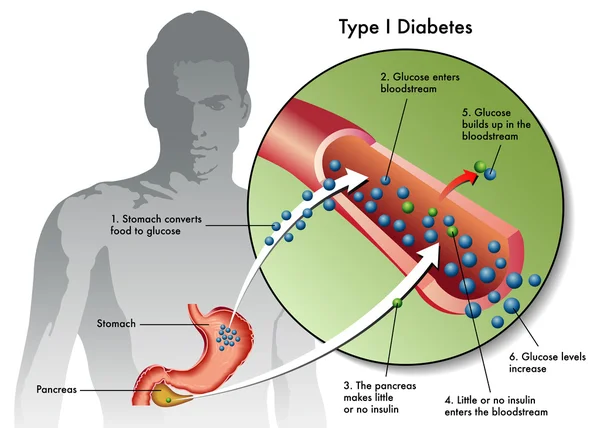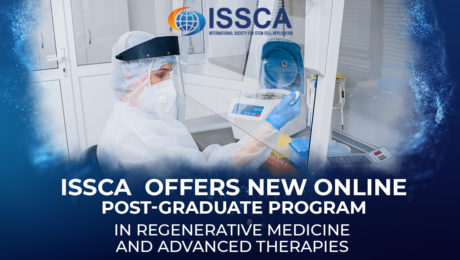ISSCA Offers New Online Post-graduate Program in Regenerative Medicine and Advanced Therapies
With video lectures and additional tools from some of the most respected names in today’s stem cells field, the course arms practitioners with the necessary knowledge and resources to offer innovative regenerative medicine treatments in their existing practices.
MIAMI, Florida— The International Society for Stem Cell Application (ISSCA) has announced it has launched a new online Post-graduate Program in Regenerative Medicine and Advanced Therapies. The course adds to the group’s already existing robust offering of onsite and online courses designed to give physicians looking to incorporate regenerative medicine protocols into their practices the education and tools necessary to do so.
Regenerative medicine has been increasingly gaining attention in today’s fast-paced medical world. As more researchers and physicians become interested in studying the field and introducing treatment protocols into their practices, it can be difficult to know which products and practices yield the best results for patients seeking these treatments for relief from degenerative diseases, noted Dr. Silvina Pastrana, main professor of the program and medical director of the stem cell center in Buenos Aires. Knowing which products work for which conditions and how to safely administer them to maximize results are key in leading a successful regenerative medicine practice.
With the new online Post-graduate Program in Regenerative Medicine and Advanced Therapies and others offered by the ISSCA, physicians will learn these valuable protocols and more about product offerings and how to choose the most effective ones. The Post-graduate Program will prepare physicians with the necessary theoretical and practical knowledge needed to effectively and safely secure better patient outcomes when using cellular therapies. With this training, physicians will gain knowledge from leading scientists in the field, learn valuable information on safety standards and quality control from top manufacturers, be positioned to perform these procedures and open a Stem Cell Center practice, join the ISSCA’s network, and enjoy the benefits of an exponentially growing industry worldwide.
Physicians looking to enroll in this online Post-graduate Program and other offerings by the ISSCA are in good hands. The group is widely considered as the global standard bearer when it comes to education and research in the regenerative medicine field. For years, the ISSCA has played a critical role in bridging the gap between the science behind stem cells and regenerative medicine and the practical application of that science in a clinical setting.
“We are pleased to add the online online Post-graduate Program in Regenerative Medicine and Advanced Therapies to our growing number of course offerings designed to deliver the skills and education needed to practitioners eager to implement stem cells treatment protocols into their existing practices,” said Benito Novas, ISSCA VP of Public Relations. “The program gives physicians the skills needed to utilize these highly effective treatments to help patients suffering from degenerative diseases while expanding on the ISSCA’s mission to continue to serve as the premier educational resource for physicians across the globe looking to introduce stem cells treatments into their practices.”
To learn more about the ISSCA, visit www.issca.us. To learn more about the group’s new online Cellular Therapy course or to register, visit https://cursocelulasmadre.com/cursos-de-certificacion/posgrado-en-medicina-regenerativa-y-terapias-avanzadas/
- Published in Press Releases
Stem cell treatment could offer one-end-solution to Diabetes
Insulin-producing cells grown in the lab could provide a possible cure for the age-old disease, diabetes.
Understanding Type 1 Diabetes
Type 1 diabetes is an autoimmune disease that destroys insulin-producing pancreatic beta cells, leading to dangerously high blood glucose levels. Patients often require insulin administration and other medications to manage blood sugar levels. For those who struggle with blood sugar control, beta-cell transplants are an option, but they require immunosuppressive drugs.
Breakthroughs in Stem Cell Research
A research group at Harvard University reported using insulin-producing cells derived from human embryonic stem cells (ESCs) and induced pluripotent stem cells to lower blood glucose levels in mice. Laboratories worldwide are making rapid progress in human stem cell technology to develop cells functionally equivalent to beta cells and other pancreatic cell types. Novel biomaterials are being developed to encapsulate these cells, protecting them from the immune system without the need for immunosuppressants.
Major Investments in Diabetes Treatment
Pharmaceutical companies and venture capital firms have invested over $100 million in leading biotechnology companies to bring stem cell treatments into clinical use. Prominent companies include:
- Semma Therapeutics
- Sigilon Therapeutics
- ViaCyte
Transforming Human Stem Cells into Insulin-Producing Cells
Researchers at UC San Francisco have successfully transformed human stem cells into mature insulin-producing cells, a significant breakthrough in developing a cure for Type 1 Diabetes (T1D). These cells mimic the function of pancreatic beta cells and offer hope for creating transplantable cells for patients with diabetes.
What is T1 Diabetes?
Type 1 diabetes is characterized by the destruction of insulin-producing beta cells in the pancreas, typically starting in childhood. Without insulin, blood glucose levels can spike, causing severe organ damage and potentially leading to death. The condition can be managed with insulin shots, but serious health complications often persist, such as kidney failure, heart disease, and stroke.

Making Insulin-Producing Cells from Stem Cells
Diabetes can be treated through a pancreas transplant or donor cell transplantation, but both methods rely on deceased donors. Scientists have struggled to produce mature beta cells responsive to blood glucose and capable of secreting insulin correctly. However, recent breakthroughs at UCSF have achieved this transformation in mice, marking a critical step toward human application.
Protecting Stem Cell Therapies from the Immune System
Delivering stem cell therapies requires protection from immune attacks while maintaining cell functionality. Companies are exploring two main strategies:
- Microencapsulation: Immobilizing cells individually or in small clusters within biocompatible gel blobs.
- Macroencapsulation: Placing larger numbers of cells into a larger, implantable device.
Companies Leading the Way
- ViaCyte: Partnered with Johnson & Johnson, using microencapsulation in clinical trials.
- Semma: Developing both macro- and microencapsulation methods, readying for clinical trials.
- Sigilon: Utilizing gel-based spheres for encapsulation, in collaboration with Eli Lilly.
Conclusion
Stem cell treatment holds the potential to revolutionize diabetes care, offering a one-end solution to managing and potentially curing the disease. With significant investments and ongoing research, the future of diabetes treatment looks promising. Researchers and companies are making strides in developing effective and safe stem cell therapies, bringing hope to millions worldwide.
- Published in Corporate News / Blog


![Secondary-Diabetes[1]](https://www.stemcellsgroup.com/wp-content/uploads/2020/02/Secondary-Diabetes1-460x260_c.png)
